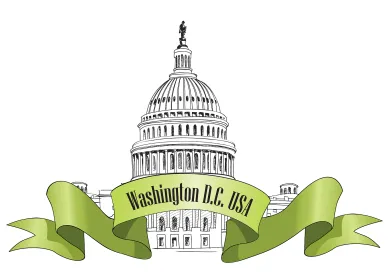On May 17, 2022, the US Court of Appeals for the DC Circuit issued an opinion in a False Claims Act suit, narrowly interpreting the so-called “government-action bar.” The government-action bar, 31 USC § 3730(e)(3), forecloses qui tam suits “based upon allegations or transactions which are the subject of ... an administrative civil money penalty proceeding in which the Government is already a party.”
In United States ex rel. Vermont National Telephone Company v. Northstar Wireless, LLC, 2022 WL 1548488, --- F.4th --- (DC Circ. 2022), the court held that the government-action bar did not apply to spectrum license proceedings conducted by the Federal Communications Commission because civil money penalties are unavailable in such proceedings.
By way of background, the FCC holds auctions in order to grant spectrum (radio frequency band) licenses to companies in order to provide television, cell phone, and wireless internet service. Before the auction, applicants submit a short-form application to the FCC verifying their eligibility for the auction and any “bidding credit” discounts they seek. If the company is successful at the auction, it submits a long-form application to the FCC, demonstrating its qualifications for the license and its eligibility for the bidding credits. Other interested parties can then petition the FCC to deny the license, and the FCC then decides whether to grant the license.
In Vermont National, two companies with winning license bids allegedly made false certifications in their applications to the FCC that they were “very small businesses” in order to obtain $3.3 billion in bidding credits for their spectrum licenses, when in fact, they were ineligible for the credits because they were effectively controlled by a large company. Eight companies petitioned the FCC to challenge the credits, and the FCC agreed that the two companies were ineligible for the credits, though it found no evidence that the entities intentionally misled the FCC. The two companies consequently decided to pay full bid amounts for the licenses they still wanted, and made mandatory “default” payments for the ones they no longer wanted.
One of the petitioners, Vermont National Telephone Company, then filed a qui tam action against the two companies, the larger company, and various affiliates, alleging that they violated the FCA by making false certifications to secure the bidding credits. The district court dismissed the complaint, holding that the government-action bar precluded the lawsuit because the allegations were the subject of the FCC proceeding, and for failure to meet the FCA’s demanding materiality requirement. Vermont National appealed.
On appeal, the DC Circuit reversed the dismissal. The court noted that the FCA does not define an “administrative civil money penalty proceeding,” but held that it must be one where the administrative agency can impose a civil money penalty. The FCC’s ability to require default payments when the winning bidder selectively declined a license, the court reasoned, did not transform the proceeding into a civil money penalty proceeding. The court also noted that while the FCC could impose monetary forfeitures, it could do so only in separate forfeiture proceedings. Because the FCC “had no authority to assess civil money penalties during its licensing proceeding,” the court concluded that the proceeding did not trigger the government-action bar.
The court further held that the complaint adequately alleged materiality because the certifications were “capable of influencing” the FCC’s bidding-credit-eligibility determination. The defendants argued that the certifications were not material because the FCC ultimately determined that they were ineligible for the credits even without knowledge of the defendants’ undisclosed agreements with a larger company. The court rejected this argument, reasoning that at the time the defendants submitted their applications, the certifications were capable of influencing the FCC’s decision to award the bidding credits, and thus they were material. The court also held that Vermont National adequately pled its claims under Rules 8(a) and 9(b). The court, therefore, reinstated the complaint.
The Vermont National decision underscores that the government-action bar provides only a narrow defense to FCA claims brought by a relator—namely, those involving administrative civil money penalty proceedings. Nevertheless, entities should always consider the full suite of potential defenses to qui tam suits, including the public disclosure bar and the first-to-file bar.




 />i
/>i

